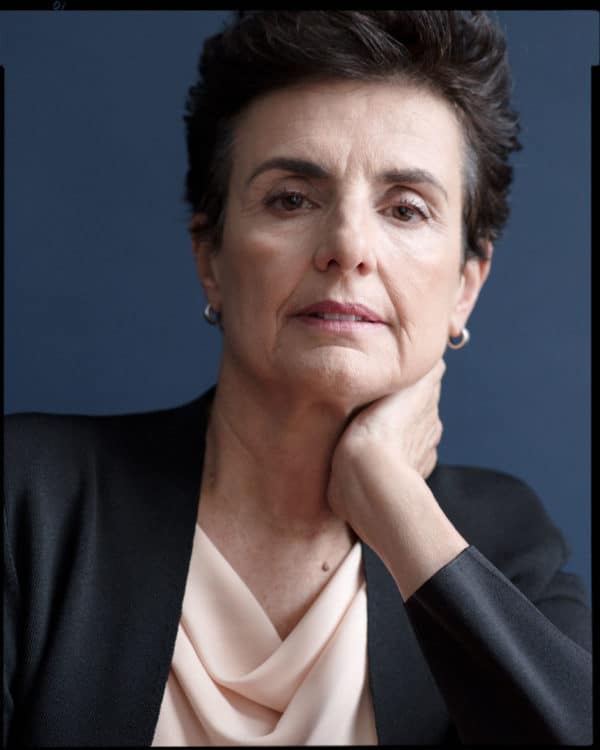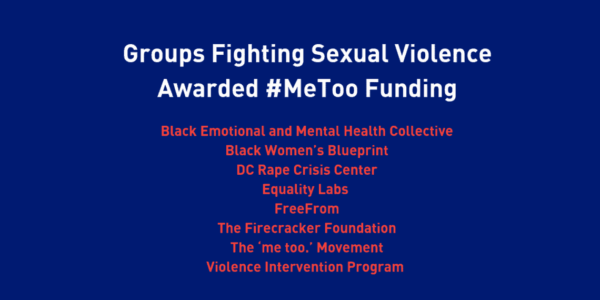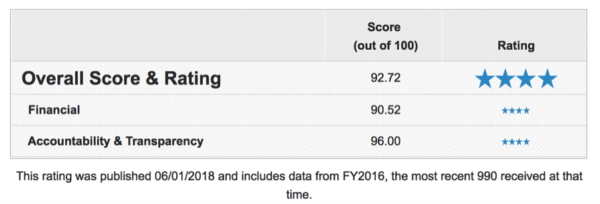All people do not have an equal opportunity to succeed in our society. This is an indisputable- yet often disputed- fact of modern life.
The New York Women’s Foundation (NYWF) challenges us to confront social inequality with a novel approach: “radical generosity.” Whether seeking to empower young women from disadvantaged backgrounds or responding to the MeToo Movement by funding groups that help victims of sexual violence, NYWF is attacking the root causes of social inequality.
The goal of the NYWF is to create a community where all women have real opportunities to succeed, regardless of race, creed, nationality, economic class, or sexual orientation. If you want to contribute to your community, the New York Women’s Foundation is a great place to start.

Inequality is Real
Few people actually like discussing social inequality. If you have achieved some degree of success, you want to believe that you earned what you have. If you have not, you hope you can still do so through your own efforts. Nevertheless, discrimination based on race, gender, social class, place of birth, or sexual orientation is real. And this discrimination is a primary cause of inequality in our society. Yet, people who do not belong to one of these disadvantaged groups often feel attacked or blamed when someone raises the issue.
Certainly, there is no doubt that the chances of ending up poor are higher for some groups than for others. For most people, incomes have risen for the past decade. But, the benefits of the post-Great Recession rebound have not been distributed equally.
The Census Bureau reported that almost 20% of NYC residents lived in poverty in 2016. For children, that figure was over 25%. Both in New York City and across the country, poverty is concentrated among women, children, and people of color.

Women- Particularly Women of Color- Have Fewer Opportunities
Women, people of color, immigrants, members of the LBGT community, and children are especially likely to be poor. For example, a study released earlier this year by the Citizens’ Committee for Children of New York, found that the poverty rate for black residents was more than double the poverty rate for whites.
As former Speaker of the New York City Council Melissa Mark-Viverito noted last year, young women of color face many obstacles when trying to pull themselves out of poverty. She cited a 2015 report from the New York Women’s Foundation which found that young women of color are more likely than other groups to lack the resources needed to complete high school and are more likely to be unemployed and out of school.
There are only two possible explanations for social inequality based on group characteristics. One possibility is that members of underachieving groups share some genetic trait that makes them unable to achieve at the same level as other groups. Many racists, sexists, xenophobes, and homophobes make exactly this claim. The other possibility is that members of these groups face obstacles to success that make it more difficult for them to succeed. Logic, evidence, and personal experiences should lead all of us to the conclusion that this a much more likely explanation for social inequality than the alternative.

See Also: Cyberbullying? the First Lady Is on a Mission
But What Can I Do About Inequality?
We all live busy lives. Work, family, school, and social obligations consume most of our time. We spend the remaining precious moments preserving our mental, physical, emotional, and financial health. Addressing social inequality is a worthy goal, but finding time to do something productive about it is hard. Each one of us is just one person. Of course, we like to think that one person can change the world. But, we also realize that history is full of people who devoted their lives to challenging inequality and, yet, here we are discussing it in 2018.
Many people do speak out about inequality in different ways. We tweet, Instagram, Facebook, and Pinterest. Some of us call out our friends, family, and co-workers for harboring the racist, sexist, and homophobic attitudes that perpetuate social inequality. During election seasons, we vote for candidates who take seriously the call to “form a more perfect union” in which the opportunity to achieve the “American Dream” is truly available to all.
These actions contribute to, and are perhaps essential for, addressing the challenge of social inequality. Yet, it is a characteristically human attribute to think we should do more. If your inner humanity is beckoning, the New York Women’s Foundations call for “radical generosity” might just be the answer you are seeking.
What Does the New York Women’s Foundation Do?
The New York Women’s Foundation was founded in 1987 as a neighborhood action group operating out of Manhattan church basement. At the time, it was easy to dismiss the group as a collection of do-gooders that did not have the resources, connections, or the know-how to have a major impact in New York’s dollar-driven philanthropic community. But, its founders were no longer willing to accept the exclusion of women from the tightly knit gentlemen’s clubs that were directing the flow of the city’s charitable dollars.
Over the past three decades,the NYWF has achieved tremendous growth. Today, the NYWF is the largest foundation devoted to women’s causes in the United States and the 3rd largest such fund in the world.
Inside Philanthropy reports that the NYWF plans to award over $9 million in grants this year and has funded over $67 million in grants since 1987. According to Philanthropy News Digest, the NYWF has given money “to more than three hundred and fifty organizations working to meet the needs of women and families in the city.”
“Radical Generosity at Work”
Earlier this year, NYWF launched a campaign called “Radical Generosity at Work.” While many corporate campaigns engage employees by soliciting donations, NYWF encourages a more communal approach. Ana Oliveira, president, and CEO of NYWF asks companies to form teams “of at least 30 people, with each person giving $30 a month for 30 months.”

What Does the NYWF Fund
The NYWF has a number of goals for its grants. Kate Landon, NYWF’s director of programs describes its approach as “participatory grantmaking.” Funding decisions are not made by an isolated board of directors. Rather, the NYWF awards grants after review by a diverse team of NYWF members and volunteers. These committees study the applicant’s financial plan, organizational operation, and mission statement. Reviewers visit potential grant sites in person to make sure that the applicant organization is a community-based group that interacts directly with its clients. The NYWF also tries to develop long-term partnerships with grant recipients. According to Ms. Oliveira, “Multiyear grants allow grantee partners to dedicate more of their attention and time to achieving their goals and increase their impact.”
NYWF has four main focus areas:
- Economic Security;
- Anti-Violence and Safety;
- Health, Sexual Rights, and Reproductive Justice;
- Capacity Building for Grantee Partners.
Groups Receiving Funding from NYWF in 2018
According to Inside Philanthropy, the NYWF has awarded grants to of the 43 groups in 2018. These six organizations have each received the largest grant of $150,000
- Generation Citizen creates a civic education curriculum and opportunities for students.
- New American Leaders supports people from diverse communities in becoming political candidates and local leaders.
- IGNITE works to involve young women in politics.
- New York City Anti-Violence Project works to empower people in the LBGT community and “to end all forms of violence” through organizing, education, counseling, and advocacy.
- New York Immigration Coalition supports a policy and advocacy group made up of more than 200 immigrant and refugee rights groups in New York.
- VoteRunLead works to “train women to run for political office and win.”
The New York Women’s Foundation and the MeToo Movement
Sexual violence, particularly when not reported and treated, contributes to gender inequality. Understanding this, the NYWF is going all-in to support Tarana Burke and the MeToo Movement. Earlier this year, NYWF pledged to raise $2 million a year to support local groups associated with the MeToo Movement. This is the most funding MeToo has received since Ms. Burke started the movement twelve years ago. Ms. Burke notes that since MeToo went viral in 2017, the increased attention has strained the ability of many local organizations to sustain essential services.
The NYWF also devoted its annual Radical Generosity Gala, which was held on October 15th at the Plaza Hotel, to recognizing leaders of the MeToo Movement. Alyssa Milano, Ryan Michaels, Shannon Haley, and Mary T. Bassett were among those honored.

At the gala, the NYWF announced funding for eight groups that are combating sexual violence. Ms. Oliveira emphasized that it is important that MeToo “not be just a moment – that the movement be supported in a sustainable manner.”
See Also: Nygal Gets Up-close with Dancing 4 Change in Nyc!

The New York Women’s Foundation 2018 Radical Generosity Gala
https://www.facebook.com/NewYorkWomensFoundation/videos/298888034037112/
Is the New York Women’s Foundation Effective?
The NYWF is now a major player in New York’s philanthropic community. It tackles issues neglected by other foundations. By creating long-term partnerships with grant recipients, it encourages a sustainable path to addressing social inequality. And the NYWF has a strong track record of raising large sums of money and managing it effectively.
Charity Navigator tracks and rates foundations based on their financial management and transparency. The NYWF receives its highest 4-star rating. The NYWF’s scores for financial management and accountability have improved every year this decade.

Recipient organizations appreciate the way the NYWF treats them. The NYWF specializes in raising money and directing it to organizations that will use it effectively. Its leadership understands that it does not have the ability to do the work carried out by the groups that it funds. MeToo founder Tarana Burke praised the NYWF for “trusting in the people who do the work to know what’s best and who’s best served by the resources.” Inside Philanthropy also endorsed NYWF campaigns like “Radical Generosity at Work” for “rebuilding a sense of institutional commitment in an individualistic age.” Social problems need collective solutions and the NYWF gets this.

What You Can Do
We lead busy lives. Many of us wish we could do more to make the world a better place. Maybe we don’t like the prevalence of inequality in our community. But we also lack the time and resources to do much on our own. This is why organizations like the New York Women’s Foundation are so important. They do the difficult organizational work and give people opportunities to connect with others who share their vision.
The NYWF website provides several ways to support its programs.
- You can volunteer to take part in reviewing grant applicants and recruiting new corporate partners.
- If this sounds too time-consuming, perhaps you could attend one of the NYWF’s many fundraising and community engagement events throughout the year.
- If you are considering a career in philanthropy, the NYWF also offers internships for young people.
- You could also ask your employer to participate in the “Radical Generosity at Work” campaign. This is a great way to encourage your company to go beyond simply discussing gender and racial inequality in the workplace.
Inequality will not disappear overnight. It probably won’t disappear at all. But, this does not mean that we must accept the things as they are. We should speak out and vote. But, we should also become engaged. If you want to engage your “radical generosity,” check out the New York Women’s Foundation. Your community and your conscience will both appreciate the effort.


